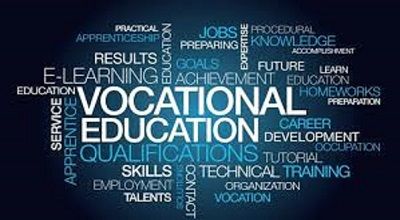Vocational Education
Vocational Education, often referred to as career and technical education (CTE), is a form of education. That focuses on providing individuals with the practical skills, knowledge, and training necessary to prepare them for specific careers or trades.
It is designed to equip students with the skills and competencies needed to enter the workforce directly in a particular field or industry. Vocational ed programs are typically more hands-on and skill-oriented compared to traditional academic programs.
Here are some key aspects and benefits of vocational education:
- Practical Skills: Vocational education programs emphasize hands-on learning. Allowing students to develop practical skills and knowledge relevant to their chosen field. This can include trades such as plumbing, electrical work, automotive repair, culinary arts, nursing, and many others.
- Shorter Duration: Vocational programs are often shorter in duration compared to traditional four-year degree programs. This means students can enter the workforce more quickly and start earning a living sooner.
- Career Readiness: Vocational ed is specifically designed to make students job-ready. Graduates are equipped with the skills and qualifications needed to enter their chosen career field immediately. Reducing the gap between education and employment.
- High Demand: Many vocational fields are in high demand, which can lead to better job prospects and potentially higher wages. Industries like healthcare, information technology, and skilled trades often have a shortage of qualified workers.
- Cost-Effective: Vocational education programs are generally more cost-effective than traditional college or university degrees. They often have lower tuition fees and shorter durations, which can result in lower student debt.
More Benefits…
- Diverse Career Options: Vocational education offers a wide range of career options. Students can choose from various programs in different areas. Such as healthcare, manufacturing, construction, hospitality, and more. Allowing them to find a path that aligns with their interests and strengths.
- Flexibility: Vocational programs often offer flexible scheduling options. Including evening and weekend classes, making it easier for individuals to pursue education. While working or managing other responsibilities.
- Adaptability: Vocational education programs can adapt to changing industry demands more quickly. Than traditional academic programs, ensuring that students learn the most up-to-date skills and knowledge.
- Personal Fulfillment: For many individuals, vocational ed can provide a sense of personal fulfillment and satisfaction, as they develop expertise in a field they are passionate about and contribute to their communities through their work.
- Lifelong Learning: Vocational education is not limited to entry-level positions. Many vocational programs offer opportunities for advancement and specialization, allowing individuals to continue learning and growing in their careers.
Final Words
Overall, vocational education plays a crucial role in addressing workforce needs. Providing individuals with the skills they need to secure stable employment, and contributing to economic growth and development. It offers a valuable alternative to traditional higher education pathways. And can be an excellent choice for those looking to pursue specific careers or trades.
